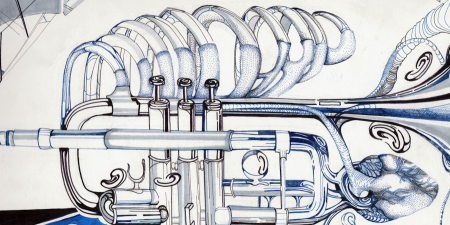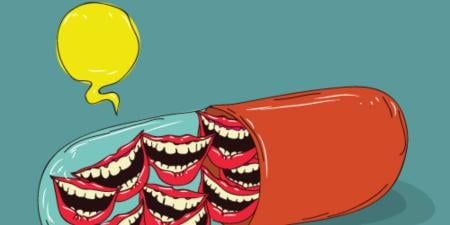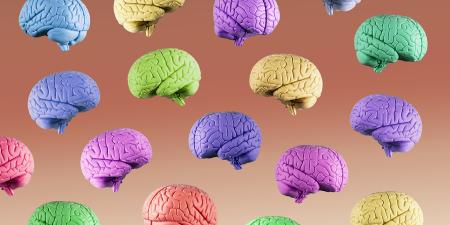Abstract
Humor can serve as a potent social bond, offering an easy shortcut for positive interaction in the context of fast-paced medical encounters. However, humor in clinical environments can also be wielded as a means of distancing or alienating others, often to promote the assumed superiority of the individual or group weaponizing the humor. This article explores the role of humor in promoting and potentially mitigating tribalism in medicine.
Against the assault of laughter, nothing can stand.
Mark Twain1
Case
LC and JJ are third-year resident physicians in obstetrics and gynecology on their way to grand rounds. “Guess what I got called for yesterday?” asks LC. “There was a pregnant woman in the emergency department suspected of having meningitis, and the intern called to ask if a lumbar puncture would pose any risk to her baby.”
JJ rolls her eyes. “Did you tell them that when pregnant women get lumbar punctures, their fetuses instantly liquify?”
LC responds, laughing, “I should have. That’s definitely a new one for the bulletin board tally sheet of stupid consultation questions.”
Commentary
In medicine, some of us are funny (like the second author), and some of us are not (like the first author). Humorous dispositions are unequally distributed among colleagues; yet, for a profession steeped in the gravity of caring for the ill and injured, humor is remarkably and ironically pervasive. At its finest, humor in clinical workplaces has potential to mitigate some stress and pressure from our emotionally laden jobs. When the timing or type of humor is off, however, costs to relationships can be high.
During a recent professional development exercise on humor, one participant shared that she heard a description of the drape that separates an anesthesiologist from members of a surgical team as “the blood-brain barrier.” Such specialty-specific jokes that reinforce harmful stereotypes are widespread, can influence training, and can be deleterious to relationships.2,3 In another example, a seasoned lecturer spoke about a study published 15 years ago and asked whether learners in the room had been born yet. Although quips like these might be perceived by some as momentarily clever, they might not be very wise, as they can be hurtful and divisive. We discuss potential benefits and harms of humor in clinical settings and focus specifically on how what we’ll call “other-doctors-are-stupid” jokes can undermine collegiality by contributing to an “us vs them” environment.
Benefits of Humor
As clinicians, we might be drawn to the health benefits of humor, both for our patients and for ourselves. Data suggest that humor can boost immune function, support effective metabolism, and facilitate release of endorphins, resulting in improved pain control, better sleep, and enhanced mood.4 In addition to its physiological benefits, humor facilitates connections among people and thus can be a useful and potent social tool, particularly in a workplace.5 Laughing together fosters better communication and can improve cooperation and empathy among people of different backgrounds.5,6 Laughter might also help us signal to others that we share a similar worldview, which can strengthen our relationships. This signaling effect was demonstrated in a study that measured facial expressions associated with laughter in subjects who had completed implicit association tests (ie, timed tests in which subjects categorize items quickly, revealing unconscious or semiconscious associations). The results showed that subjects laughed more in response to humorous stimuli that accorded their implicit biases or preferences regarding racial groups or social roles.7 These results suggest that seeing someone else laugh at jokes that make you laugh evokes a shared connection, even when you are not physically close to the person you are laughing with. Research with video partners also found that shared laughter consistently increased participants’ sense of similarity with their video partner and desire to affiliate with him or her.8
An ethical trouble with superiority-based humor, however, is that we all lose in this zero-sum game.
As mentioned, humor can have valuable roles in fast-paced health care environments where intense relationships form.9,10 Keller and Koenig showed that humor is one of the most effective strategies employed by emergency medicine physicians to prevent adverse psychological sequelae of their work, including burnout.11 Humor helps caregivers deal with stress, fosters collegiality, and improves morale.12 Humor can also signal a person’s general receptiveness to social interaction: clinicians greeting colleagues with a smile usually get one in return.13
Harms of Humor
Although there is obvious benefit to the use of humor, it can be harmful. Ferguson and Ford define disparagement humor as “remarks that (are intended to) elicit amusement through the denigration, derogation, or belittlement of a given target (eg, individuals, social groups).”14 Ridicule (ie, laughing at someone else for the purpose of demeaning that person) is a kind of disparagement that leverages primal negative emotions and reinforces harmful stereotypes. Humor driven by the desire to ridicule is weaponized humor, designed to demote the target to a humiliated state of “otherness,” such as “other doctors are stupid,” as in the opening case with the emergency medicine intern and the obstetrics residents.
“Us-vs-them” divides have a long history. Aristotle believed that we laugh at people we perceive as ugly or stupid to express the joy we feel about our apparent superiority.14 Socrates added that we laugh at those who are delusional about their own abilities, which allows us to demonstrate—or so we think—that we’re more clearsighted. Thomas Hobbes also claimed that laughter provides a moment of “glory,” in which we feel ourselves to be superior to others.14 These thinkers built the foundation for what modern psychologists describe as the superiority theory of humor: “our” self-esteem derives from downward social comparison with “them,” whom we dislike, perceive to be inferior, and disparage for “our” amusement.14 An ethical problem with superiority-based humor, however, is that it is by its very nature a zero-sum game. If “other doctors” are stupid, then “we” must save our patients from “them.”
The Case for “Harmless” Humor: Prepositions Matter
Not surprisingly, illusions of superiority perpetuated by disparagement humor get us nowhere when we’re trying to take good care of patients. Tribal clinical practice impedes collegiality, allowing us to devalue colleagues’ viewpoints. Poor interprofessional collaboration, possibly due to tribalism, impedes understanding of others’ roles and responsibilities and is a potent barrier to better patient care.15,16 Moreover, “professional tribalism” can influence professional decision making, contributing to unplanned admissions.17 Dysfunctional tribalism is seen in the case when one intern’s concern about the implications of lumbar puncture for a pregnant woman is mocked by 2 residents. The consulting resident’s disdain for the question and for the clinician who posed it certainly doesn’t serve the patient or the team’s collective efforts to help the patient.
What does this consultation teach the intern? Perhaps the intern now perceives lack of knowledge as a source of shame, although clinicians are supposed to consult specialists when they have important questions. One can imagine that this interaction might influence the intern’s willingness to initiate consultations in the future, even in a case in which emergent intervention is needed. The intern likely feels the separation between “us” (the emergency medicine team) and “them” (the obstetric team), and both groups’ subsequent use of and subjection to derisive humor will reinforce these tribal loyalties. We’d do well to remember here that the words humor and humiliation have the same etymological root; disparagement humor reminds us that the border between them is thin.
In our experience, clinicians who create a culture of fear through their practices are those whom we tend to try to avoid, even when their expertise could benefit both patients and other clinicians. What’s important to note is that we can use humor in medicine without creating or endorsing dysfunctional tribalism. The desire to socially identity oneself with a group is a natural human impulse with many positive effects, including team building and stress relief, and we can embrace these positive effects while mitigating the negative effects. We must seek opportunities to share rather than weaponize humor in order to break down barriers between “us” and “them.” Laughing at a colleague is unlikely to create productive collaboration, but laughing with a colleague can align interests, promote well-being, and optimize our capacities to delivery good, team-based patient care.
References
-
Twain M. The Mysterious Stranger. Project Gutenberg. https://www.gutenberg.org/files/3186/3186-h/3186-h.htm. Published August 19, 2006. Updated February 24, 2018. Accessed April 6, 2020.
- Salles A, Mueller CM, Cohen GL. Exploring the relationship between stereotype perception and residents’ well-being. J Am Coll Surg. 2016;222(1):52-58.
-
Harendza S, Pyra M. Just fun or a prejudice?—physician stereotypes in common jokes and their attribution to medical specialties by undergraduate medical students. BMC Med Educ. 2017;17(1):128.
- Martin RA. Is laughter the best medicine? Humor, laughter, and physical health. Curr Dir Psychol Sci. 2002;11(6):216-220.
- Mesmer-Magnus J, Glew DJ, Viswesvaran C. A meta-analysis of positive humor in the workplace. J Manag Psychol. 2012;27(2):155-190.
- Hampes WP. Relation between humor and empathic concern. Psychol Rep. 2001;88(1):241-244.
- Lynch R. It’s funny because we think it’s true: laughter is augmented by implicit preferences. Evol Hum Behav. 2018;31(2):141-148.
- Kurtz LE, Algoe SB. When sharing a laugh means sharing more: testing the role of shared laughter on short-term interpersonal consequences. J Nonverbal Behav. 2017;41(1):45-65.
- Bennett HJ. Humor in medicine. South Med J. 2003;96(12):1257-1261.
- Goodman J. Laughing matters: taking your job seriously and yourself lightly. Orthop Nurs. 1989;8(3):11-13.
- Keller KL, Koenig WJ. Management of stress and prevention of burnout in emergency physicians. Ann Emerg Med. 1989;18(1):42-47.
- Burchiel RN, King CA. Incorporating fun into the business of serious work: the use of humor in group process. Semin Perioper Nurs. 1999;8(2):60-70.
-
Henneman B, Hanc J, Henneman PL. Smiley’s people. JAMA. 1989;262(18):2541.
- Ferguson MA, Ford TE. Disparagement humor: a theoretical and empirical review of psychoanalytic, superiority, and social identity theories. Humor. 2008;21(3):283-312.
-
Zwarenstein M, Goldman J, Reeves S. Interprofessional collaboration: effects of practice-based interventions on professional practice and healthcare outcomes. Cochrane Database Syst Rev. 2009;8(3):CD000072.
- Grol R, Grimshaw J. From best evidence to best practice: effective implementation of change in patients’ care. Lancet. 2003;362(9391):1225-1230.
- Simmonds RL, Shaw A, Purdy S. Factors influencing professional decision making on unplanned hospital admission: a qualitative study. Br J Gen Pract. 2012;62(604):e750-e756.



